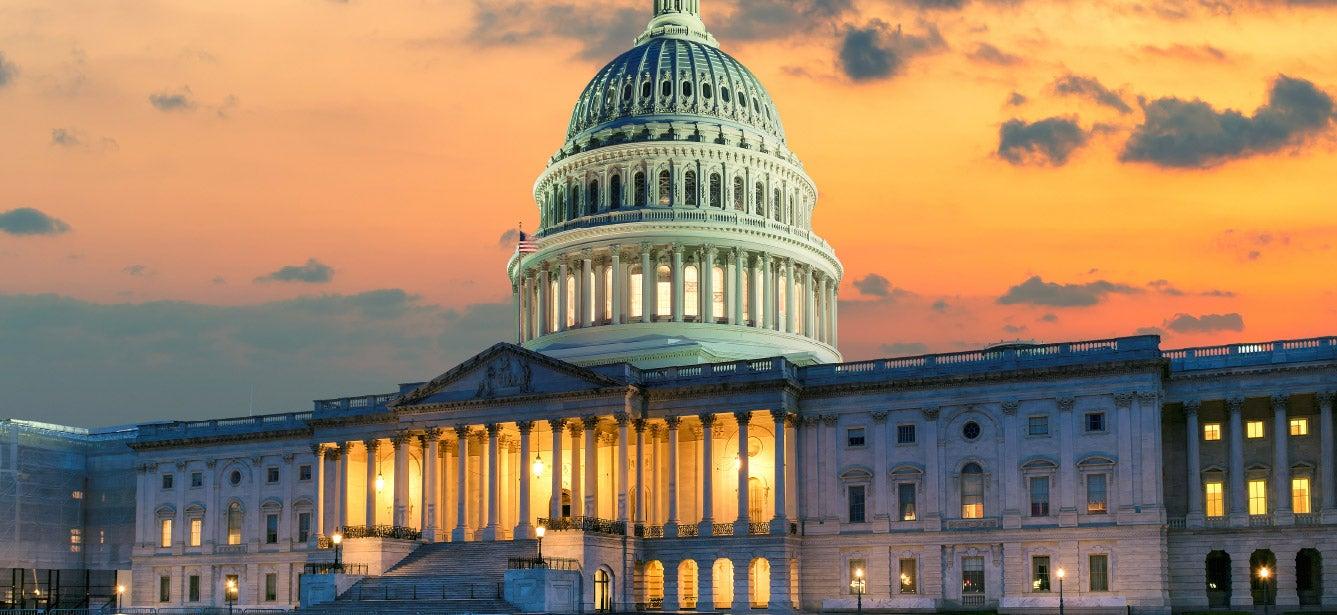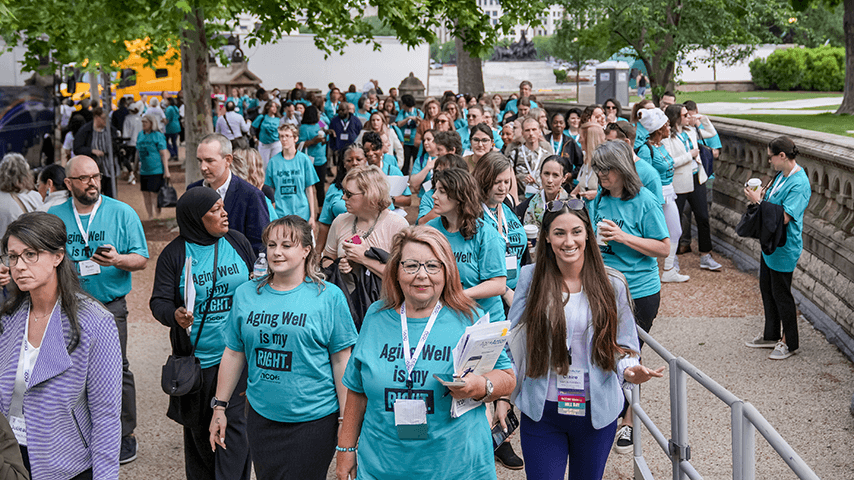New Law Will Help Older Americans Save for Retirement, Access Mental Health Care
5 min read

Congress ended 2022 by passing an omnibus bill with several key policy items important to older adults, including provisions that will help Americans save for retirement and access mental health care.
The bipartisan measure—formally known as the Consolidated Appropriations Act of 2023—includes most of the priorities identified by the Leadership Council of Aging Organizations (LCAO), which NCOA chairs. Below are some highlights.
Medicaid improvements in the Consolidated Appropriations Act
The act extends Medicaid’s Money Follows the Person and spousal impoverishment protection programs until 2027, which will enable more older adults and people with disabilities to move out of institutions and back into the community and protect spouses from having to spend into poverty to gain coverage.
Unfortunately, Congress did not make these initiatives permanent as NCOA had requested. NCOA had advocated that the package include a major investment in Medicaid home care and direct care workers, which the House passed last year.
Mental health support in the Consolidated Appropriations Act
The law expands access to mental health services by addressing barriers to the mental health workforce, continuing to fund crisis support, and providing grants to outpatient community-based organizations providing necessary mental health service capacity.
It expands Medicare coverage for behavioral health services to include marriage and family therapists and licensed mental health counselors, which will help meet the growing demand for this type of care. The act also funds telephonic assistance and mobile crisis units via the National Suicide Prevention Lifeline Program and intensive outpatient mental health care.
Telehealth expansion in the Consolidated Appropriations Act
The legislation provides two additional years of Medicare telehealth waiver flexibilities, and it guarantees access to telehealth even if a patient has not met an insurance plan’s deductible.
Reforms to help Americans save for retirement
The law features several reforms to help Americans save for retirement, including many of the priority requests from LCAO that NCOA also supported:
- An improved saver’s credit with a government match will encourage people with low and moderate incomes to save for retirement. The bill restructures a tax credit available to certain workers, changing it from a credit paid in cash as part of a tax refund into a federal matching contribution that must be deposited into a taxpayer’s IRA or retirement plan. The match phases out between $41,000 and $71,000 for taxpayers filing jointly ($20,500 to $35,500 for single taxpayers). The government would put up to $1,000 annually into workers’ retirement accounts starting in 2027, regardless of whether they have an income tax liability. The credit currently is only available to people with an income tax liability.
- New emergency savings incentives will allow a penalty-free withdrawal of up to $1,000 from retirement accounts to cover emergency expenses. The provision would remove outdated barriers, expand flexibilities, and establish guardrails for employers seeking to enroll employees in a variety of emergency savings tools. An estimated one in four households report they have no emergency savings, a figure that is double for those making less than $50,000 a year.
- Starting in 2025, the act will require employers to permit part-time workers to join a retirement plan within two years of being hired, rather than having to wait the current three years.
- Starting in 2025, the act will require new 401(k) and 403(b) plans to automatically enroll all employees unless they opt out, with exceptions for small businesses, startups, churches, and governments.
- The act establishes a national lost and found database for retirement accounts within the Department of Labor to ensure people don’t lose track of money in plans from past employers.
- All workers enrolled in retirement plans will receive detailed paper statements of their account and benefits unless they opt-out to receive them electronically.
- The act includes provisions for some penalty-free withdrawals for the terminally ill, victims of domestic abuse, and the payment of certain long-term-care insurance premiums.
Unfortunately, the act does not include NCOA-supported efforts to modernize and strengthen the Supplemental Security Income (SSI) program, for example, by raising decades old asset eligibility thresholds.
Public health emergency considerations in the Consolidated Appropriations Act
Although the law does not set an end date for the COVID-19 Public Health Emergency, it:
- Sets an end date for the pandemic continuous health insurance enrollment provision
- Establishes a phase-out timeline for enhanced federal Medicaid match rates to states
- Outlines a timeline for Medicaid eligibility redeterminations
States can start Medicaid eligibility redeterminations as early as April 1, 2023 and have 14 months to complete them. The enhanced match to states will decrease on April 1 and phase out by Dec. 31, with strengthened beneficiary protections to mitigate improper disenrollments. Watch for additional information from NCOA on this provision.
Appropriations that impact older adults
Congress also made long-overdue investments in key aging programs (see a full list in our Aging Program Funding Table), including:
- A $2.5 million increase for the U.S. Administration for Community Living (ACL) and $1 million increase for the U.S. Centers for Disease Control and Prevention to prevent falls, the leading cause of fatal injuries among older adults
- A $12 million increase in ACL Aging Network Support Activities, which includes:
- $5 million for the new ACL Research, Demonstration, and Evaluation Center to disseminate innovative OAA services that foster older Americans’ health
- $1 million in first-time funding for the Interagency Coordinating Committee on Healthy Aging and Age-Friendly Communities to enable coordination of federal programs that empower older adults to remain independent
- $2 million for a direct care workforce demonstration project to identify and reduce barriers to entry for a high-quality direct care workforce and to explore new strategies for the recruitment, retention, and advancement opportunities needed to attract or retain direct care workers
- A $2.1 million increase for the State Health Insurance Assistance Program, which offers unbiased, one-on-one counseling to Medicare beneficiaries
- A record $6 billion or LIHEAP in regular and emergency appropriations to address the growing cost of heating fuel this winter and prepare for the summer cooling season
- A $42 million increase for Section 202 Housing for the Elderly
- A $15 million increase—or doubling—of the Aging in Place Home Modification Grants Program
Despite this progress, we are disappointed that the act still fails to adequately fund Older Americans Act programs and other aging services to keep pace with inflation and the increased demand for services. It was appropriate that historic investments of pandemic relief were directed to aging services because older adults were disproportionately affected by COVID-19. But demand remains high for these interventions that empower older adults to live independently in their own homes and communities, and funding has not kept pace with the need.
We look forward to working with the new Congress in 2023 to ensure every American has the resources they need to age with health and financial security.



